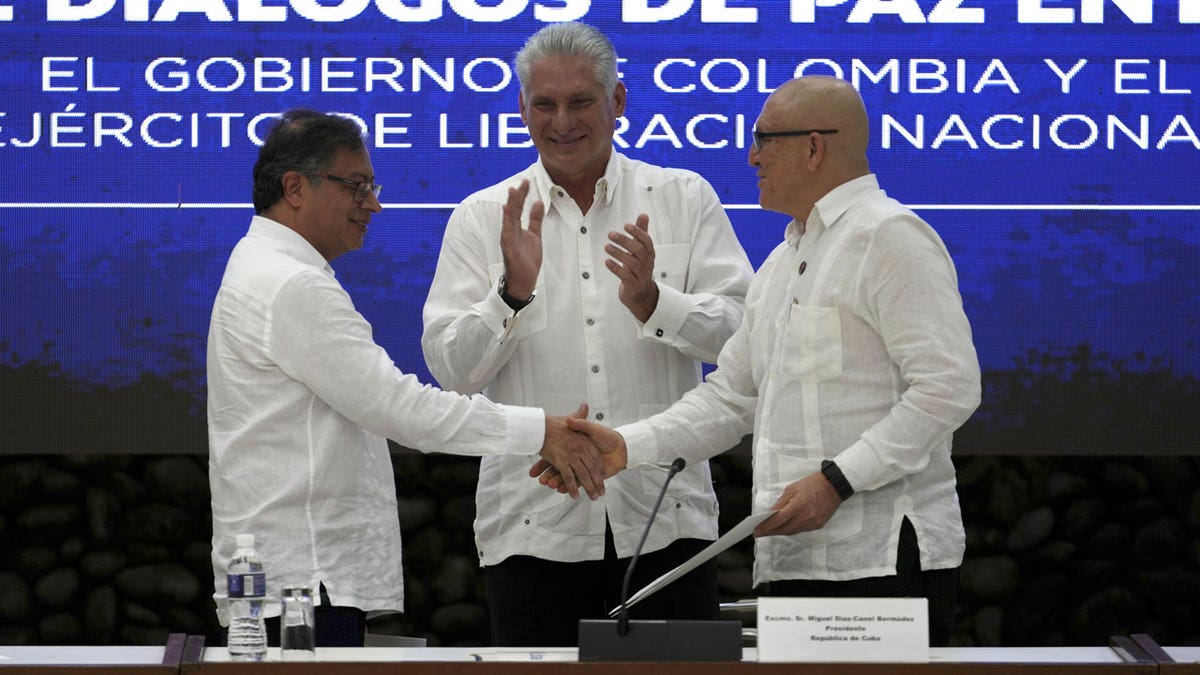A significant step towards peace has been taken in Colombia, with the government and the National Liberation Army (ELN) agreeing to a six-month ceasefire. This development, announced in Havana, Cuba, marks a renewed effort to resolve the decades-long conflict that has plagued the nation since the 1960s.
The agreement, witnessed by Colombian President Gustavo Petro, ELN commander Antonio García, and Cuban officials, will be implemented gradually, becoming fully effective in August. The ceasefire is set to last for six months, offering a window of opportunity for further peace negotiations.
Pablo Beltrán, the lead negotiator for the ELN, expressed optimism, viewing the ceasefire as a symbol of hope for peaceful conflict resolution through political and diplomatic means.
While the official ceremony was initially slated for Thursday, it was delayed to finalize the agreement's details. President Petro's presence underscored the significance of the event, with the hope that it could usher in an era of peace for Colombia.
The agreement also includes the establishment of a national committee by the end of July, representing diverse segments of Colombian society, to discuss a path towards lasting peace. President Petro emphasized the importance of societal involvement, stating that while he agrees with the bilateral agreement, Colombian society needs to participate in the discussion and debate its implications.
García, the ELN commander, expressed confidence in the agreement, though he described it as a procedural step rather than a substantial change required for meaningful transformation in Colombia.

The negotiations, which resumed in August, had previously been halted in 2019 following a deadly car bomb attack at a Bogotá police academy, attributed to the ELN. The attack, which claimed 21 lives, led to the issuance of arrest warrants for ELN leaders based in Cuba. Cuba, however, refused to extradite them, citing its neutral stance in the conflict and diplomatic protocols.
The election of Gustavo Petro as Colombia’s first leftist president marked a turning point, with talks restarting in November. Petro's vision of "total peace" aims to demobilize all remaining rebel groups and drug trafficking organizations. He has, however, raised concerns about the ELN's leadership structure, questioning the control senior commanders have over younger members who might be more focused on drug trafficking than political objectives.
The ELN, established in the 1960s by a coalition of union leaders, students, and priests inspired by the Cuban revolution, has proven a challenging negotiating partner for previous Colombian administrations. It remains the largest active rebel group in the country.
This latest ceasefire agreement follows the 2016 peace accord with the FARC, which ended five decades of conflict that resulted in an estimated 260,000 deaths. Despite this landmark agreement, violence persists in some rural areas where the ELN, FARC splinter groups, and drug cartels operate. While Colombian authorities have linked the ELN to drug trafficking, the group's leadership denies involvement.
Comments(0)
Top Comments